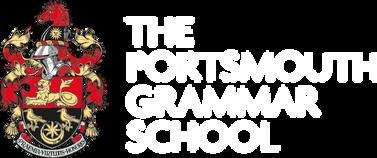




The A Level Computer Science course aims to develop your computational thinking skills in solving a variety of coding problems and scenarios. Your ability to program in Python will be enhanced and developed far beyond GCSE level as we explore Object Orientated Programming. While the A Level course focuses on the data structures and algorithms that are the foundations for most modern applications, there will also be time to explore other areas of programming that interest you. Different types of programming languages and their uses are explored. The course also covers many aspects of Computer Science theory at various levels of abstraction, from the understanding of computer components and systems to a more detailed analysis of communication, security and the functionality of computer networks. There is a stronger mathematical focus, for example learning how binary is used to perform calculations and how we can store floating point numbers efficiently for these calculations.
Paper 1 – Theory Fundamentals
90 minutes, 25% of A Level
Paper 2 – Fundamental Problem-solving and Programming Skills
120 minutes, 25% of A Level
Paper 3 – Advanced Theory
90 minutes, 25% of A Level
Paper 4 – Practical*
150 minutes, 25% of A Level
*Candidates will submit complete program code and evidence of testing. Candidates will be required to use Python programming language. Candidates will answer all questions on a computer without internet or email facility.
Computer Science & Mathematics GCSE at Grade 7 or above.
You do not have to have studied Computer Science before taking A Level; however, it would be a significant advantage if you have done so. If you have not studied Computer Science before, then Mathematics GCSE at Grade 7 or above is required as well as an interest in and experience of coding.
• Computational thinking and problem-solving
• Programming
• Computer architecture and hardware
• Data representation and structures
While studying, A Level Computer Science pupils are encouraged to take part in the annual competitions for coding and computational thinking. Every year we enter pupils into the Bebras Computational Thinking competition which acts as a qualifying round for entry to the TCS Oxford Computational Challenge. The department also enters the most able pupils into the annual British Informatics Olympiad, which is designed to find the very best computer programmers in this age group.
The Russell Group Universities have identified Computer Science A Level as being a useful course to have taken for many university courses. Some examples include; Geology/Earth Sciences, Mathematics, Mechanical Engineering, Medicine, Physics, Aeronautical Engineering, Chemistry, Civil Engineering, Electrical/Electronic Engineering and Engineering. Professions that require the subject include Computer Hardware Engineer, Computer Network Architect, Computer Programmer / Software Engineer, Cyber Security Analyst, Data Analyst, Forensic Computer Analyst, Software/Games Developer and Web Developer.
Contact our Head of Digital Learning, Mr. H Stayte: Telephone: 023 9268 1399
Email: H.Stayte@pgs.org.uk
You can also find more information on the exam board's website: www.cambridgeinternational.org